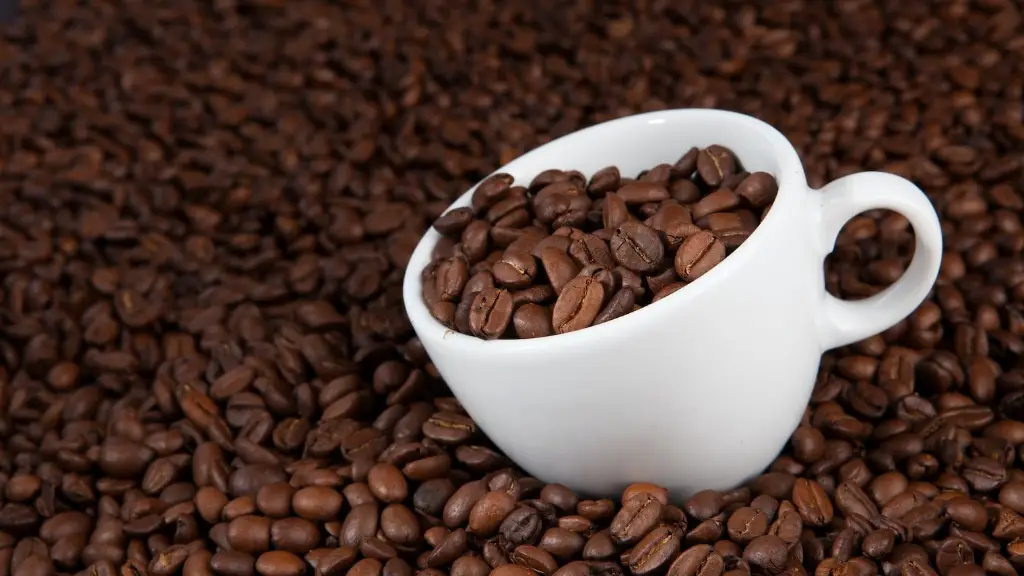Benefits of Drinking Black Coffee Before Surgery
Before major surgery, many people are told they have to fast for eight hours prior to the procedure. This means no food or drink, except for a sip of water to take certain medications. It is believed that this can reduce the chances of a complication like vomiting during surgery. For many people, however, the thought of being unable to have that morning cup of coffee is a source of anxiety, fear and frustration. Fortunately, there is a way to satisfy one’s caffeine cravings, even when fasting for surgery. Black coffee can be a viable option for those looking for a way to consume caffeine without breaking the fast.
The main reason black coffee is allowed before surgery is because it does not contain calories, sugars, or any other type of carbohydrate that could be metabolized. This is important, because if a person drinks something other than plain water, the additional calories can increase the risk of aspiration and other complications during surgery. The minimal amount of caffeine in black coffee also does not pose a serious risk of jitteriness that could potentially lead to a surgical complication.
In addition to being safe for preoperative patients, black coffee can also provide a variety of benefits. The caffeine in the coffee can help reduce hunger and make it easier for patients to comply with the preoperative fasting regulations. It can also provide a mild stimulant effect, which may help the patient feel more awake and alert during the preoperative period. Finally, the smell of the coffee can provide a comforting feeling, which is important since patients may feel anxiety leading up to the surgery.
Caution with Black Coffee Before Surgery
While black coffee may have potential benefits before surgery, it is important to remember that it should not be consumed in large amounts. Studies have shown that too much caffeine can lead to jittery feelings, increased heart rate and other complications. Therefore, it is best to limit intake to one or two cups of black coffee before the surgery.
It is also important to remember that, while black coffee is allowed before surgery, it may not be the best option for everyone. Patients who are already prone to nervousness, anxiety or jitteriness may find that it exacerbates their symptoms. In such cases, it is best to avoid coffee and turn to water or other calorie-free beverages such as herbal tea.
Finally, because caffeine can stay in the body for several hours after consumption, it is important to be mindful of how much coffee is consumed close to surgery. Too much caffeine can be a distraction for the patient during the procedure, which can have implications for the success of the surgery.
Alternative Beverages to Consider Before Surgery
For those who are not keen on coffee, or those who require additional hydration, there are several alternative beverages to consider. Water is always a good option as it helps with preoperative hydration. There are also calorie-free sports drinks, herbal teas, or sugar-free drinks that can provide additional hydration without increasing the risks of surgical complications.
In addition to being calorie-free, these alternatives can also provide additional benefits. For example, Vitamin C and electrolytes found in sports drinks can help prevent fatigue and dehydration, which may be of concern if the surgery is expected to last for a long time. While herbal tea can provide some of the same benefits as coffee, it does not contain caffeine, which can be beneficial for patients who are prone to jitteriness.
Finally, there are several “emergency” beverages such as energy drinks, tea with honey, or flavored water that may provide additional hydration but contain a small amount of calorie. While considered low risk for most patients, it is best to talk to the healthcare team prior to consuming these beverages.
Tips for Preparing for Surgery
In addition to knowing the best beverages to consume, there are several other tips that patients should keep in mind when preparing for surgery. Prior to the procedure, it is important to discuss concerns and questions with the healthcare team. Asking questions and fully understanding the procedure can help reduce preoperative anxiety.
It is also important to be sure that the patient’s medications are well managed prior to surgery to reduce the risk of adverse drug events. Finally, it is important to stay as active as possible and eat a balanced diet leading up to the procedure. Staying well nourished can help reduce postoperative complications.
Implications for Future Surgery
As the knowledge and understanding of preoperative fasting progresses, it may become necessary for patients to make different dietary choices before surgery. It is possible that more specific guidelines for preoperative nutrition and hydration may be established in the future, depending on the type and complexity of the procedures being performed.
It will be important that healthcare providers ensure that their preoperative instructions are based on state-of-the-art evidence, and that they consider the patient’s individual needs. This can help ensure that surgical patients are optimally prepared and have the information they need to make informed decisions about their preoperative diet.
Impact of Caffeine on Surgical Outcomes
The impact of caffeine on surgical outcomes is still not well understood. Caffeine has been linked to increased heart rate, increased blood pressure and jittery feelings, all of which can have an impact on the success of a surgery. Studies have also suggested that caffeine may not be as beneficial as initially believed, particularly in those who are already prone to jitteriness or anxiety.
More research is needed to fully understand the impacts of caffeine on preoperative and operative events. Until then, it is important for patients to practice moderation when choosing foods and beverages prior to surgery. It is also essential that patients follow the guidelines provided by their healthcare provider and discuss any questions or concerns prior to the procedure.
Current Guidelines for Preoperative Nutrition and Hydration
Current preoperative guidelines prescribe complete fasting for eight hours prior to elective surgery. Depending on the procedure, liquids may be allowed up to one hour prior to surgery, provided that they are free of calories and do not contain any type of carbohydrate.
This includes black coffee but excludes all other types of coffee such as cold brew, cappuccino, latte, and so forth. But, due to the possible stimulant effects of caffeine, patients should limit their intake to one or two cups of black coffee.
The main rationale behind this recommendation is to reduce the risk of aspiration in the operating room. It is believed that reducing the amount of fluid in the stomach can reduce the risk of developing aspiration pneumonia, which can be a serious postoperative complication.
Conclusion and Outlook
In conclusion, black coffee can be a useful and safe preoperative beverage, provided it is consumed in moderation. The caffeine in the coffee can help reduce hunger and make it easier for patients to comply with the preoperative fasting regulations. It can also provide a mild stimulant effect, which may help the patient feel more awake and alert during the preoperative period. However, it is important to note that more research is needed to fully understand the impacts of caffeine on preoperative and operative events.




